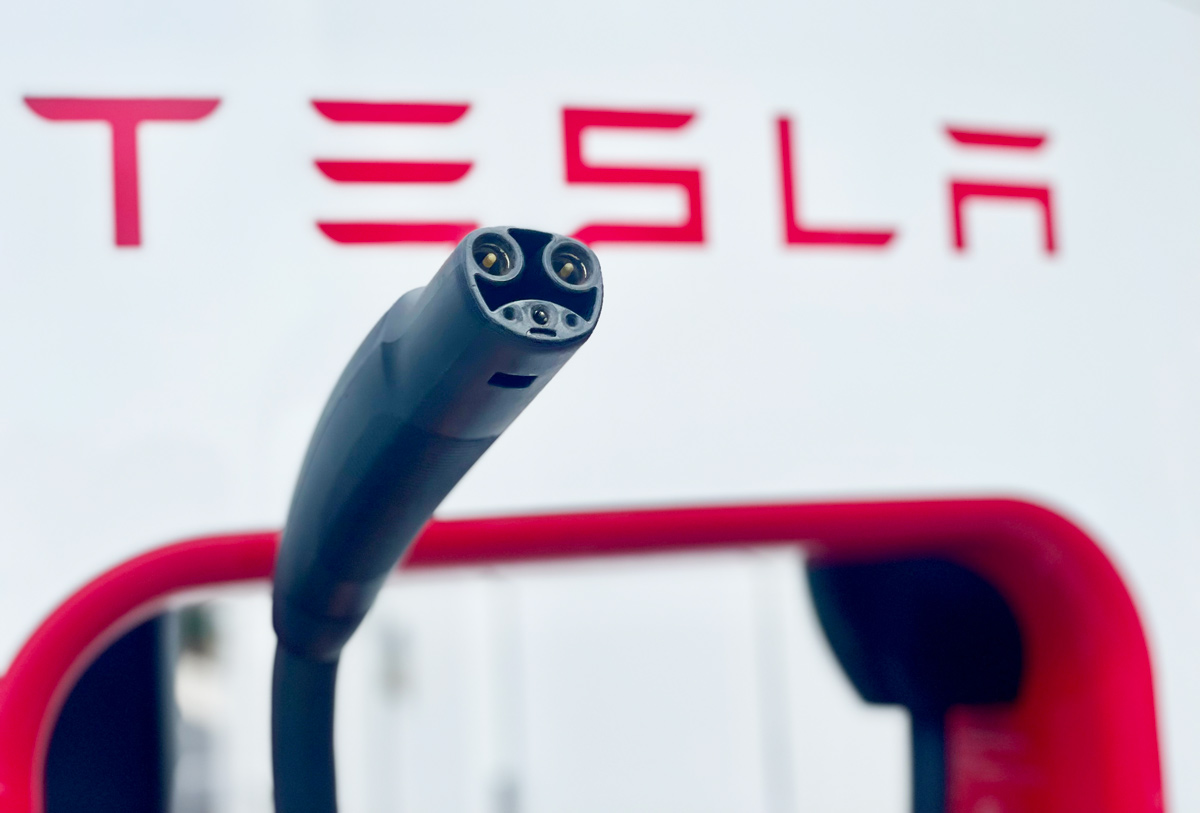The Federal Highway Administration is seeking feedback on how government rules should be updated to support the new NACS/J3400 standard, which enables other companies to manufacture and use Tesla’s formerly proprietary charging connector.
The Bipartisan Infrastructure Law includes $7.5 billion in subsidies for public EV charging infrastructure. $5 billion of that will be funneled through the NEVI program, which has a goal of creating a nationwide network of fast chargers along major US highways.
To receive government funding, the chargers installed must be usable by all brands of EVs. This requirement inspired Tesla to release the specs for its charging connector, which it dubbed the North American Charging Standard (NACS).
At first, this seemed a bit pretentious of Tesla—a “standard” usually refers to something that’s used by more than one company. However, the EV industry quickly and enthusiastically embraced NACS. Ford and GM announced that they would offer the NACS plug on upcoming vehicles. Other automakers, EVSE manufacturers and network operators soon followed, and today we’d have to say that it has become a de facto standard.
However, before it becomes a de jure standard, fully eligible for federal charger subsidies, the authorities want to verify that NACS meets the minimum standards specified by the NEVI program. As it stands at the moment, chargers installed with federal funding can have NACS connectors, but must also include CCS connectors.
Standards organization SAE set out to develop a proper, independent standard that all companies can use with confidence, and Tesla agreed to allow SAE to manage the standardization process. SAE recently produced the Electric Vehicle Coupler J3400 Technical Information Report, which “will help to ensure that any supplier or manufacturer will be able to use, manufacture, or deploy the J3400 [aka NACS] connector.”
Whatever you call it, the new charging system has now been admitted into the parlors of polite society, and the Federal Highway Administration has announced that it “will soon publish a Request for Information (RFI) to solicit feedback from stakeholders on updating FHWA’s minimum standards and requirements for electric vehicle (EV) charging stations to allow for new technology [specifically J3400/NACS].”
As Electrek’s Jameson Dow notes, the journey has had some ironic twists. The NEVI rules will now be updated to support the new standard, but Tesla’s decision to promote NACS as a “standard” in the US appears to have been brought on by NEVI in the first place. For years, Tesla was happy with its walled garden, but in 2021, the company began opening its European Supercharger up to other automakers’ EVs, presumably in order to take advantage of subsidies on offer in Norway and Sweden. More recently, the US government dangled the prospect of billions of dollars for universally-available chargers under the NEVI program, and lo! A standard was born.
More reams of rules will be written and more acronyms coined, but if the end result is to make charging more efficient and more widely available, then we say, “Hey, whatever.”
Sources: FHWA, Joint Office of Energy and Transportation, Electrek



